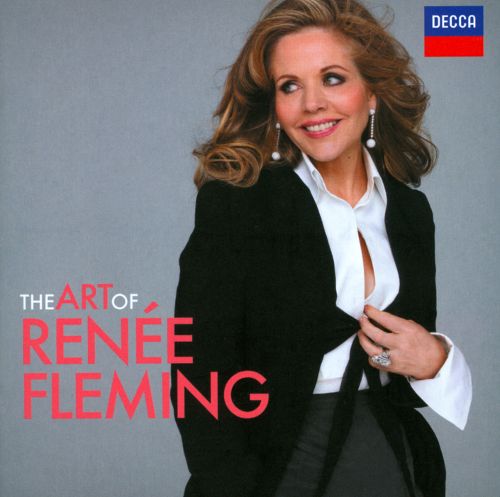

|
Fleming was born in Indiana, Pennsylvania, on February 14, 1959. Her parents were high school vocal music teachers in Rochester, New York, where she mostly grew up. In 1981, she graduated from the State University of New York at Potsdam (where she sang in a jazz trio at a bar) with a degree in music education and continued her musical studies at the Eastman School of Music, which she credits with giving her a strong academic and theoretical background. From 1983 to 1987, she was enrolled in the American Opera Center at Juilliard, where she met Beverley Johnston, the voice teacher with whom she would continue to study throughout her career. Fleming also recalls with admiration the year she spent studying Lieder with Arleen Augér, on a Fulbright Scholarship. In 1988, she won the Metropolitan Opera National Council Auditions and the George London Prize (in the same week), and the Eleanor McCollum Competition in Houston. Fleming sang the Countess in Mozart's Le nozze di Figaro at the Houston Grand Opera in 1988, made her New York City Opera debut in 1989 as Mimi in La bohème, and her Covent Garden debut as Glauce in Cherubini's Medea later that year. In 1991, she made her acclaimed Met debut, stepping in for an indisposed Felicity Lott as the Countess, which was also her debut role in San Francisco (1991), Vienna State Opera (1993), and Glyndebourne (1994). In 1993, she made her debut at La Scala as Donna Elvira in Don Giovanni, and she sang Eva in Die Meistersinger at the 1996 Bayreuth Festival. Since that time, she has continued performances at the world's leading opera houses and concert halls and has continued to expand her repertoire. Among the roles for which she has won acclaim are Handel's Alcina and Rodelinda; Rossini's Armida, Violetta, Manon, Thaïs, Tatyana, and Rusalka; and numerous roles in Strauss operas, including the Marschallin, Daphne, Arabella, and the Countess in Capriccio. She created the role of Rosina in Corigliano's The Ghosts of Versailles in 1991, Madame Tourvel in Conrad Susa's Dangerous Liaisons in 1994, and Blanche DuBois in André Previn's A Streetcar Named Desire in 1998. She has garnered praise for her many recordings, both on CD and DVD, has been nominated for 12 Grammy Awards and has won four, in 1996, 1999, 2010, and 2013. In addition to her work in the classical repertoire, Fleming has recorded contemporary pop songs, jazz, and film soundtracks. She has hosted a number of television and radio broadcasts, including The Metropolitan Opera's Live in HD series, and Live from Lincoln Center for PBS. Her honors include Sweden’s Polar Prize (2008), designation as Chevalier de la Légion d’Honneur from the French government (2005), Honorary Membership in the Royal Academy of Music (2003), and a 2003 Honorary Doctorate from the Juilliard School. In 2012 she received the U.S. National Medal of the Arts from President Barack Obama.
-- Biography adapted from the Allmusic website.
-- [Throughout this webpage, names which
are links refer to my interviews elsewhere on my website. BD]
|
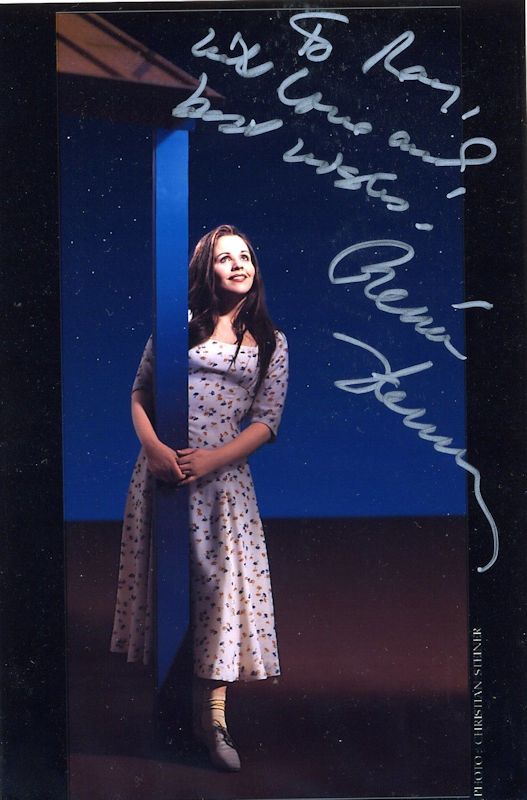 When posting these interviews on my website,
I don’t put a specific title on them (unless they were previously
published in a printed journal, in which case, the title is included).
So, most are just ‘A Conversation with...’.
This one, however, could easily be called ‘Promise
Fulfilled’.
When posting these interviews on my website,
I don’t put a specific title on them (unless they were previously
published in a printed journal, in which case, the title is included).
So, most are just ‘A Conversation with...’.
This one, however, could easily be called ‘Promise
Fulfilled’.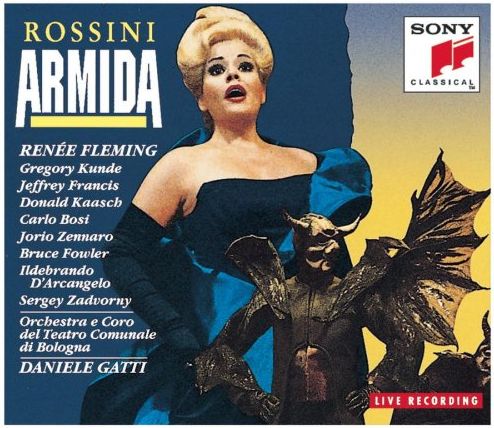 BD: When you’re building your schedule, do you make
sure that you keep enough time for you and your family?
BD: When you’re building your schedule, do you make
sure that you keep enough time for you and your family?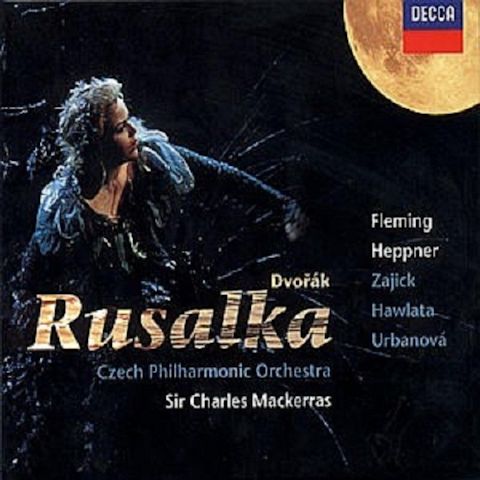 RF: I look at my repertoire, and actually new works
don’t really fit into it that much at this point. I look at
the core of my repertoire as being very much in Mozart. Most of
my debuts in major opera theaters in the world have been in the role
of the Countess in The Marriage of Figaro. I do a lot
of Mozart, and then to the one side of that are the higher, more florid
roles in the bel canto repertoire, which I find keep my voice
in as good a shape as it can be. They’re the most virtuosic, and
the most difficult, and I also love them because they’re so free and
so expressive. They’re closest too my days as a jazz singer. I
developed that and the bel canto repertoire together. Then, to
the other side of the Mozart is the Slavic and Russian repertoire that
I love — Janáček, Dvořák, Tchaikovsky
— which I’ve done quite a bit of at this point.
RF: I look at my repertoire, and actually new works
don’t really fit into it that much at this point. I look at
the core of my repertoire as being very much in Mozart. Most of
my debuts in major opera theaters in the world have been in the role
of the Countess in The Marriage of Figaro. I do a lot
of Mozart, and then to the one side of that are the higher, more florid
roles in the bel canto repertoire, which I find keep my voice
in as good a shape as it can be. They’re the most virtuosic, and
the most difficult, and I also love them because they’re so free and
so expressive. They’re closest too my days as a jazz singer. I
developed that and the bel canto repertoire together. Then, to
the other side of the Mozart is the Slavic and Russian repertoire that
I love — Janáček, Dvořák, Tchaikovsky
— which I’ve done quite a bit of at this point.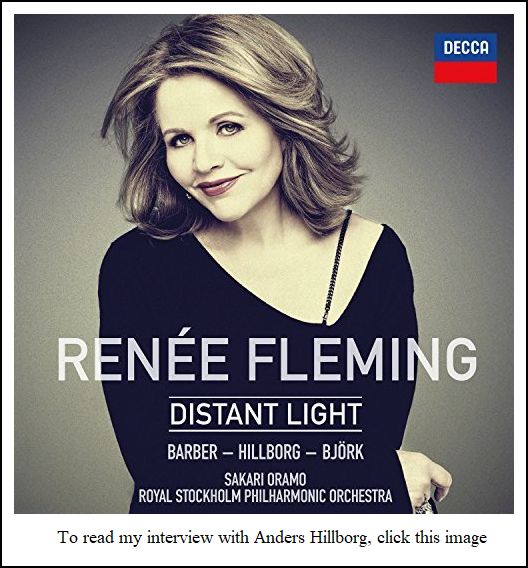 RF: No, not really, but that’s
the part of what I do that I don’t like. It’s not because I
don’t like to travel. I love to travel and I love to be in new
places. I’m the kind of person that anywhere I hang my clothes
is home. But I really miss my family and my friends, and that’s
something that we always have to do. So, we manage.
RF: No, not really, but that’s
the part of what I do that I don’t like. It’s not because I
don’t like to travel. I love to travel and I love to be in new
places. I’m the kind of person that anywhere I hang my clothes
is home. But I really miss my family and my friends, and that’s
something that we always have to do. So, we manage.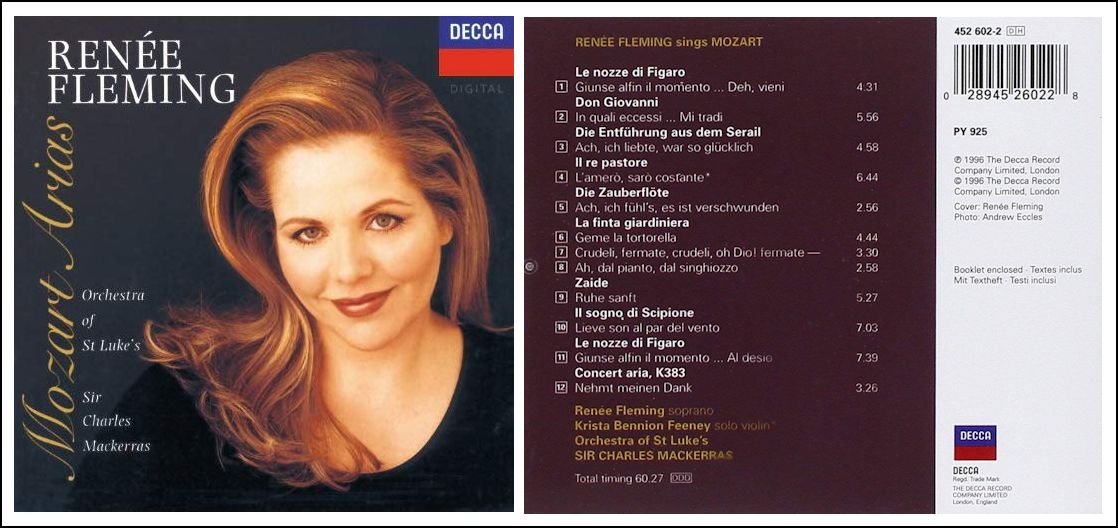
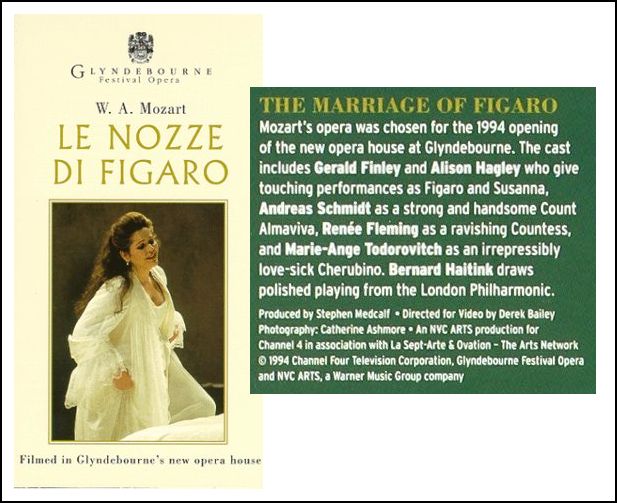 BD: Because it was lower pitch?
BD: Because it was lower pitch?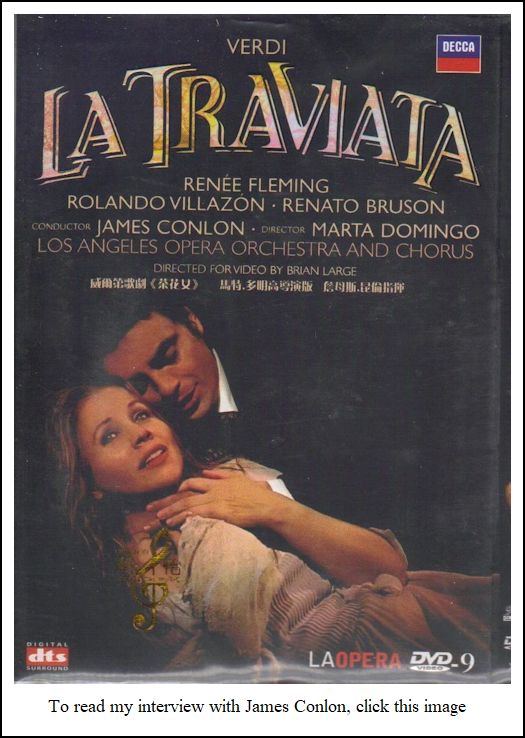 BD: They take one disc out of
their throat and put the new disc in! [Much laughter]
BD: They take one disc out of
their throat and put the new disc in! [Much laughter]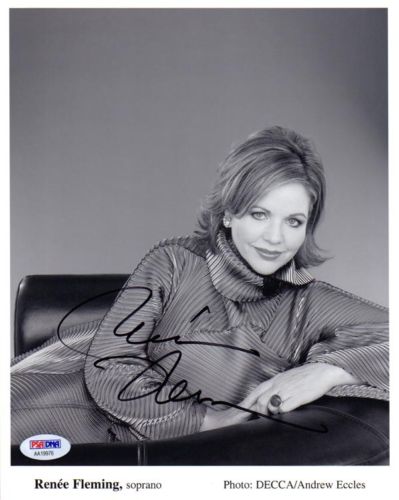 RF: It should be both. The bottom line is
that’s what art is — it is entertainment.
Yes, we’re supposed to be enlightened, and our lives are supposed
to be enhanced. It should affect us very deeply and very movingly,
but it is ultimately something that brings us joy and is entertainment.
That’s a definition which has to be, first of all, discussed
to find out what that means, and secondly, judged on a per-piece basis.
It’s tough to answer, but we shouldn’t forget that what we do is primarily
to move people. When I go to the theater, my scale of whether
something has succeeded or not is whether I’ve been touched in some way,
and more than intellectually. I want to get goose bumps by someone
singing. I want to tears to come to my eyes by someone’s voice.
I want to feel something because most of us — particularly
in our society, and particularly ‘super-women’ like who me who try to
do everything — end up feeling like robots
just trying to get the next thing done while very much staying in control
of our lives and running around. So, when I go to the theater, I want
something to be affected in me — the spiritual
side or the emotional side. That’s my scale; that’s how I judge things.
RF: It should be both. The bottom line is
that’s what art is — it is entertainment.
Yes, we’re supposed to be enlightened, and our lives are supposed
to be enhanced. It should affect us very deeply and very movingly,
but it is ultimately something that brings us joy and is entertainment.
That’s a definition which has to be, first of all, discussed
to find out what that means, and secondly, judged on a per-piece basis.
It’s tough to answer, but we shouldn’t forget that what we do is primarily
to move people. When I go to the theater, my scale of whether
something has succeeded or not is whether I’ve been touched in some way,
and more than intellectually. I want to get goose bumps by someone
singing. I want to tears to come to my eyes by someone’s voice.
I want to feel something because most of us — particularly
in our society, and particularly ‘super-women’ like who me who try to
do everything — end up feeling like robots
just trying to get the next thing done while very much staying in control
of our lives and running around. So, when I go to the theater, I want
something to be affected in me — the spiritual
side or the emotional side. That’s my scale; that’s how I judge things.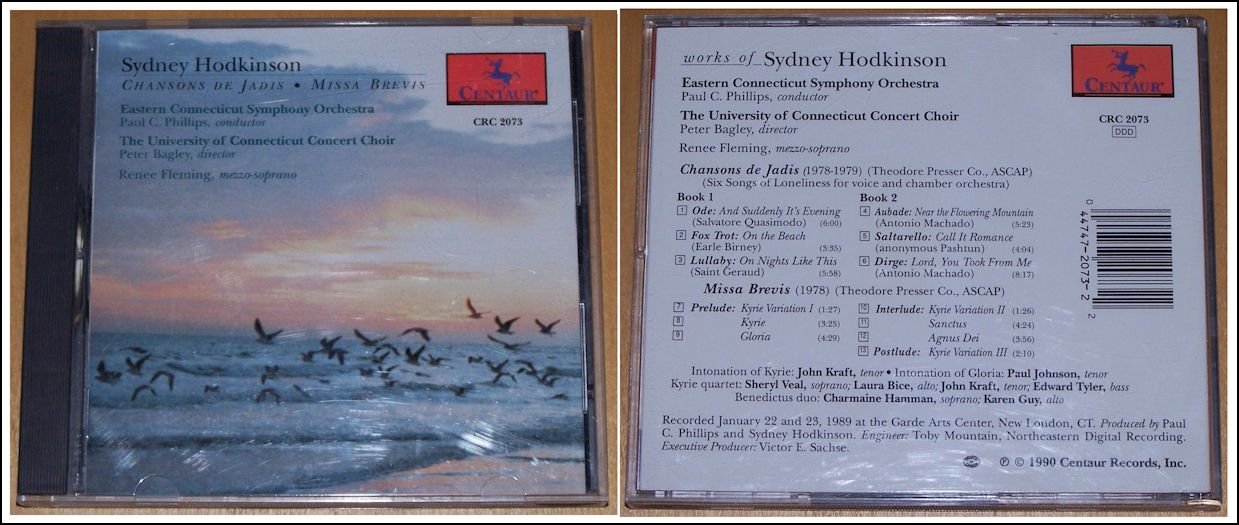
Renée Fleming at Lyric Opera of Chicago
1993-94 - Susannah [Floyd] (Susannah) with Ramey, Myers, Magee, Kraft; Manahan, Falls, Yeargan, Schuler 1995-96 - Faust (Marguerite) with Leech, Ramey, Hvorostovsky, Risley; Nelson, Corsaro, Colavecchia, Tallchief, Schuler 1997-98 - Marriage of Figaro (Countess) with Terfel, Futral, Hagegård, Graham, Travis, Cook, Davies; Mehta, Hall/Lawless, Tallchief, Bury, Schuler 1999-2000 - Alcina (Alcina) with Larmore, Blake, Dessay, Kuhlmann; Nelson, Carsen, Hoheisel, Kalman 2000-01 - Otello (Desdemona) with Heppner, Gallo, Kaufmann (Cassio), Wrighte; Davis, Hall, Gunter, Henderson/Buswell 2002-03 - Thaïs (Thaïs) with Hampson, Kaasch, Cabell, McNeese, Morscheck; Davis, Cox, Brown, Schuler 2006-07 - Solo Concert, conducted by Sir Andrew Davis 2007-08 [Opening Night] - Traviata (Violetta) with Polenzani, Hampson, Baggott, Corona; Davis, Corsaro, Heeley, Binder 2010-11 - Reveived the title of Creative Consultant with Lyric Opera of Chicago - Solo Concert conducted by Sir Andrew Davis 2011-12 - Duo Concert with Dmitry Hvorostovsky conducted by Sir Andrew Davis 2012-13 - Second City Guide to the Opera (Co-Hosted with Patrick Stewart) - Duo Concert with Susan Graham, Bradley Moore pianist - Streetcar Named Desire [Previn] (Blanche) with Rhodes, Griffey; Rogister, Dolton, Schuler 2013-14 - Duo Concert with Jonas Kaufmann, conducted by Sir Andrew Davis 2014-15 - Capriccio (Countess) with Skovhus, Von Otter, Rose, Iversen, Burden; Davis, Cox/McClintock, Pagano, Schuler - Lyric Opera of Chicago 60th Anniversary Concert with many artists, conducted by Sir Andrew Davis 2015-16 - Merry Widow (Hanna) with Hampson, Carfizzi, Stober, Spyres; Davis, Stroman, Maravich |
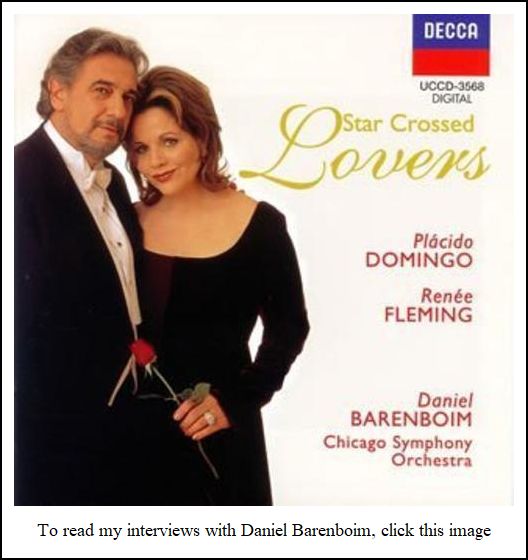 BD: We are glad you’ve taken Chicago to your
heart, and put us on your ever-growing list.
BD: We are glad you’ve taken Chicago to your
heart, and put us on your ever-growing list.[At this point, we chatted briefly about our educational accomplishments, and found
they were quite similar — both of us having earned a Bachelor’s Degree in Music
Education, equipping us to teach music in the schools . . . . . .]
© 1993 Bruce Duffie
This conversation was recorded in Chicago on October 21, 1993. Portions were broadcast on WNIB a few months later, and again in 1995, 1996, 1999, and 2000. This transcription was made in 2018, and posted on this website at that time. My thanks to British soprano Una Barry for her help in preparing this website presentation.
To see a full list (with links) of interviews which have been transcribed and posted on this website, click here.
Award - winning broadcaster Bruce Duffie was with WNIB, Classical 97 in Chicago from 1975 until its final moment as a classical station in February of 2001. His interviews have also appeared in various magazines and journals since 1980, and he now continues his broadcast series on WNUR-FM, as well as on Contemporary Classical Internet Radio.
You are invited to visit his website for more information about his work, including selected transcripts of other interviews, plus a full list of his guests. He would also like to call your attention to the photos and information about his grandfather, who was a pioneer in the automotive field more than a century ago. You may also send him E-Mail with comments, questions and suggestions.